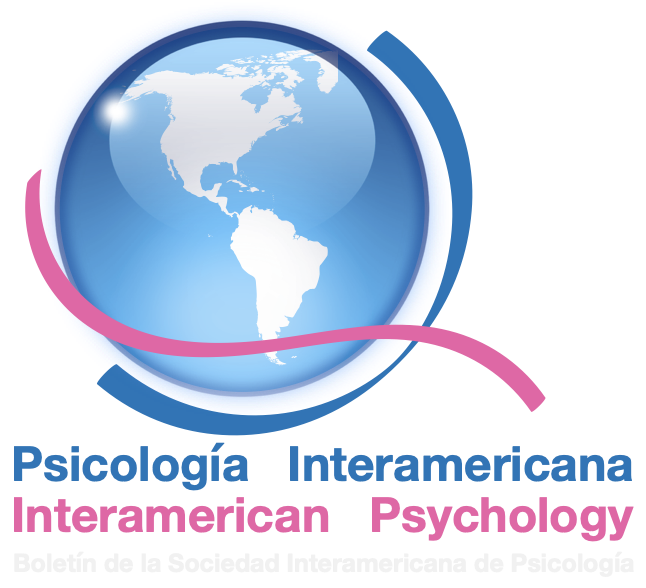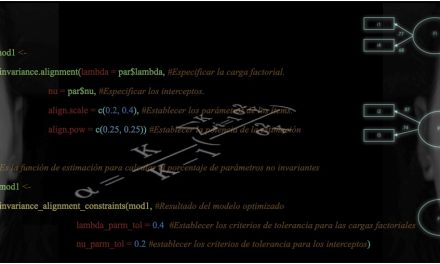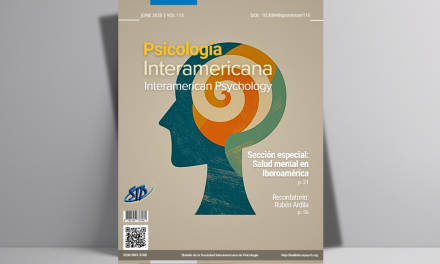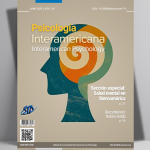
Cambio climático, valores y salud mental: Aportes de la Psicología Ambiental a la sostenibilidad
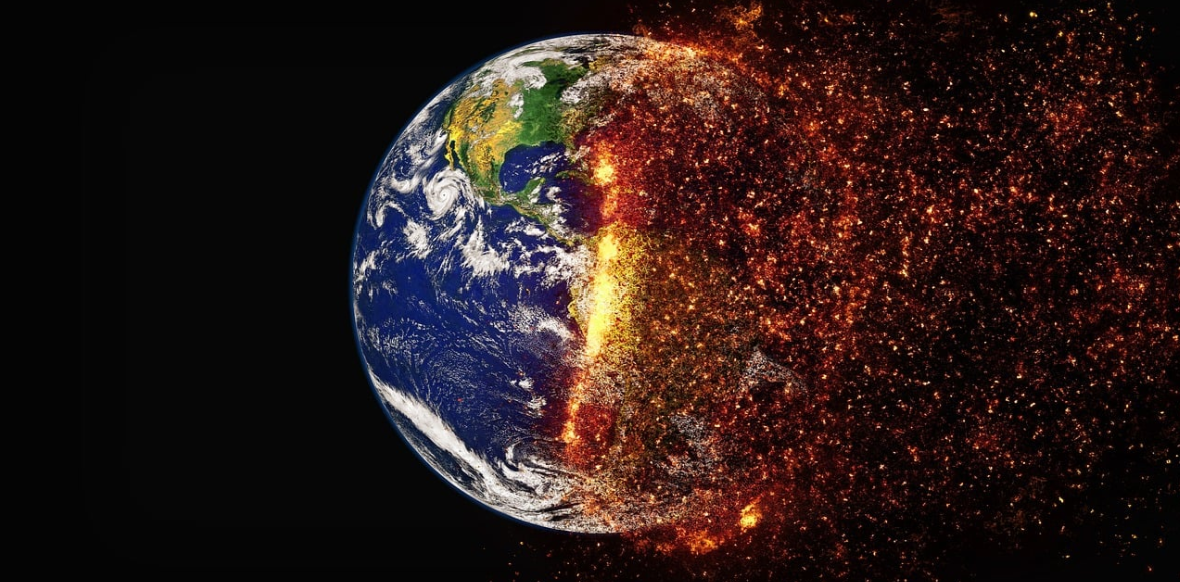
Favara, J. V., & Moreno, J. E.
jesica.favara@usal.edu.ar
Instituto de Investigación en Psicología y Psicopedagogía, Universidad del Salvador (USAL), Argentina – Proyecto de Investigación “Preocupación, Creencias y Valores frente al Cambio Climático en Jóvenes y Adultos, su relación con la Ecología Integral y la Salud Mental.”
Resumen
El cambio climático es una amenaza contemporánea para el bienestar de las personas, incluyendo su salud mental (IPCC, 2022). En los últimos años se observa de forma progresiva mayor sensibilidad hacia temas ambientales, como también un incremento en manifestaciones como la desesperanza y el malestar psicológico. Desde la psicología ambiental, disciplina que estudia la relación entre las personas y el ambiente (Corraliza y Aragonés, 2002), se ha avanzado en la comprensión de cómo variables como valores, creencias ambientales y conductas proambientales se relacionan con el bienestar. Este artículo presenta un recorrido teórico de los últimos años sobre estos vínculos, especialmente en entornos urbanos, destacando la necesidad de políticas públicas que integren la salud mental y la sostenibilidad (Clayton et al., 2017; Steg & Vlek, 2009).
Introducción
Luego de la pandemia por el COVID-19 que impactó a nivel mundial, el vínculo entre la salud humana, el ambiente y el bienestar psicosocial se ha resignificado. Investigaciones (Lawrence et al., 2021) han demostrado que tanto el confinamiento como la pérdida de contacto con la naturaleza y la incertidumbre respecto al futuro ambiental han generado impactos psicológicos significativos.
La psicología ambiental, entendida como la disciplina de la psicología social interesada en la interrelación entre las personas y su entorno, se ha expandido hacia una mirada más integradora y crítica, contemplando tanto a la psicología de la sostenibilidad (Corral-Verdugo et al., 2010) como también a la ecopsicología (Hibbard, 2003). Estos enfoques no solo analizan determinantes del comportamiento proambiental sino también las emociones y los conflictos psíquicos vinculados al deterioro ecológico (Majeed & Lee, 2017; Taylor & Murray, 2020; Wu et al., 2020). Además, proponen una lectura sistémica del vínculo entre el ser humano y la naturaleza, entendiendo que el deterioro ambiental no es solo producto de decisiones individuales, sino de un sistema global influenciado por el consumo y la desconexión afectiva con los ecosistemas (Buzzell, 2013).
Valores y creencias ambientales en el escenario actual
Evidencia actualizada sostiene que los valores biosféricos y altruistas son predictores consistentes de la adopción de conductas proambientales (Ruepert et al., 2017; Steg, 2023). En contextos pospandémicos, la preocupación ambiental se ha tornado más emocional, evidenciando un conflicto de valores entre el consumo, la comodidad y la protección del ambiente (Pons & Martínez, 2025).
La población latinoamericana, especialmente los jóvenes y universitarios, a diferencia de los adolescentes (Moreno et al., 2022), se ha mostrado un incremento en la conciencia ambiental (Angelelli et al., 2022; Moreno et al., 2024). Si bien esto no siempre se traduce en acciones sostenibles, sí refleja una preocupación creciente (Angelelli et al., 2022; Singh et al., 2022). Este fenómeno se vincula con la búsqueda de valores vinculados a la cooperación y a una vida armoniosa (Favara & Moreno, 2024) y a la percepción de la ausencia de políticas públicas eficientes (Geissdoerfer et al., 2017).
Salud mental y malestar ecológico
El impacto del cambio climático en la salud mental ha emergido como una preocupación central desde 2020 (Hickman et al., 2021; Moreno et al., 2021). Entre los conceptos desarrollados se destaca la ecoansiedad, entendida como una reacción a la amenaza climática que puede volverse disfuncional al combinarse con desesperanza o parálisis emocional (Clayton & Karazsia, 2020; Pihkala, 2022).
Hickman et al. (2021) demostraron que un gran porcentaje de jóvenes en varios países reportaban niveles extremos de preocupación climática, afectando su funcionamiento cotidiano. En la misma línea en Argentina, investigaciones recientes encontraron que menores niveles de conexión con la naturaleza y mayores niveles de apatía se asocian con mayor desesperanza (Favara et al., 2025). La conexión con la naturaleza promueve tanto el bienestar subjetivo como las actitudes proambientales (Favara & Moreno, 2020a; Restall & Conrad, 2015; Nisbet et al., 2011), y puede mitigar la desesperanza frente al cambio climático al fortalecer el compromiso ecológico (Clayton, 2019). Así, el acceso a espacios naturales y la educación ambiental que refuerce la identidad ecológica pueden desempeñar un rol protector (Favara & Moreno, 2023).
Conductas proambientales y bienestar subjetivo
Numerosos estudios han demostrado que las personas que llevan a cabo conductas proambientales tienden a reportar mayores niveles de sentido de propósito, conexión social y bienestar psicológico (Favara & Moreno, 2023; Olivos & Clayton, 2016; Vu Nguyen et al., 2024). Esta relación estaría mediada por la percepción de autoeficacia, la identificación con grupos proambientales y la conexión emocional con la naturaleza (Favara & Moreno, 2020b; Schultz, 2001). Asimismo, Ojala (2023) propone el concepto de “esperanzamiento” crítico, que reconoce la amenaza climática pero incorpora la posibilidad de acción colectiva, ubicando al activismo ambiental como factor protector frente al malestar emocional, al ofrecer un marco de sentido y pertenencia (Favara & Moreno, 2024; Stanley et al., 2021).
Jóvenes latinoamericanos: entre la sensibilidad y la acción
En América Latina, los jóvenes muestran altos niveles de preocupación por el ambiente y el cambio climático (Shahid et al, 2021), pero también desesperanza (Ojala et al, 2021). Aun así, esta generación participa activamente en prácticas individuales y colectivas sostenibles, como el veganismo o las marchas climáticas (Favara & Moreno, 2023; Gravante & Poma, 2021; Moor et al., 2020). Investigaciones indican que quienes tienen mayor educación ambiental (Moreno et al., 2020), tanto formal como informal, así como más contacto con la naturaleza, presentan mejor regulación emocional (Kaplan & Kaplan, 2009; Pérez Cambra, 2015), menor ansiedad climática (Ruiz, 2022) y mayor compromiso cívico (UNESCO, 2021).
Conclusiones
El contexto post-pandémico ha intensificado la necesidad de repensar el vínculo entre ambiente, salud mental y comportamiento humano. La psicología ambiental debe incorporar una mirada preventiva y comunitaria frente a problemas emergentes como la ecoansiedad y la desesperanza. Además, debe colaborar en el diseño de intervenciones alineadas con valores biosféricos y en la inclusión de la salud mental en políticas públicas de sostenibilidad (Clayton et al., 2017; Corral-Verdugo et al., 2019).
El futuro requiere un cambio de paradigma, en el que el desarrollo sostenible sea también emocionalmente sostenible, entendiendo que el bienestar humano y la protección del ambiente no son dimensiones separadas, sino profundamente interdependientes.
—————————————–
Climate Change, Values, and Mental Health: Contributions of Environmental Psychology to Sustainability
Abstract
Climate change is a contemporary threat to human well-being, including mental health (IPCC, 2022). In recent years, there has been a progressive increase in sensitivity toward environmental issues, along with a rise in expressions such as hopelessness and psychological distress. Environmental psychology— discipline that studies the relationship between people and their environment (Corraliza & Aragonés, 2002)—has made significant progress in understanding how variables such as values, environmental beliefs, and pro-environmental behaviors relate to well-being. This article presents a theoretical overview of recent years concerning these links, especially in urban settings, highlighting the need for public policies that integrate mental health and sustainability (Clayton et al., 2017; Steg & Vlek, 2009)
Introduction
Following the global impact of the COVID-19 pandemic, the connection between human health, the environment, and psycho-social well-being has been redefined. Research (Lawrence et al., 2021) has shown that both confinement and the loss of contact with nature, along with uncertainty about the environmental future, have caused significant psychological impacts.
Environmental psychology, understood as the branch of social psychology focused on the relationship between people and their surroundings, has expanded toward a more integrative and critical perspective, embracing both sustainability psychology (Corral-Verdugo et al., 2010) and ecopsychology (Hibbard, 2003). These approaches not only examine the determinants of pro-environmental behavior but also explore
the emotions and psychological conflicts linked to ecological degradation (Majeed & Lee, 2017; Taylor & Murray, 2020; Wu et al., 2020). They also propose a systemic understanding of the human-nature connection, emphasizing that environmental degradation is not merely the result of individual choices, but of a global system shaped by consumption and emotional disconnection from ecosystems (Buzzell, 2013).
Environmental Values and Beliefs in the Current Landscape
Updated evidence indicates that biospheric and altruistic values are consistent predictors of pro-environmental behavior (Ruepert et al., 2017; Steg, 2023). In post-pandemic contexts, environmental concern has become more emotionally charged, reflecting a value conflict between consumption, comfort, and environmental protection (Pons & Martínez, 2025).
In Latin America, particularly among youth and university students—unlike adolescents (Moreno et al., 2022)—there has been an increase in environmental awareness (Angelelli et al., 2022; Moreno et al., 2024). While this does not always translate into sustainable actions, it does reflect growing concern (Angelelli et al., 2022; Singh et al., 2022). This phenomenon is linked to the search for values associated with cooperation and a harmonious life (Favara & Moreno, 2024), as well as to the perception of a lack of effective public policies (Geissdoerfer et al., 2017).
Mental Health and Ecological Distress
The impact of climate change on mental health has emerged as a central concern since 2020 (Hickman et al., 2021; Moreno et al., 2021). One key concept is eco-anxiety, understood as a reaction to climate threat that can become dysfunctional when combined with hopelessness or emotional paralysis (Clayton & Karazsia, 2020; Pihkala, 2022).
Hickman et al. (2021) showed that a large percentage of young people in several countries reported extreme levels of climate concern, affecting their daily functioning. Similarly, in Argentina, recent studies found that lower levels of conection with nature and higher levels of apathy are associated with increased hopelessness (Favara et al., 2025).
Connection to nature fosters both subjective well-being and pro-environmental attitudes (Favara & Moreno, 2020a; Restall & Conrad, 2015; Nisbet et al., 2011), and it can mitigate hopelessness in the face of climate change by strengthening ecological commitment (Clayton, 2019). Therefore, access to natural spaces and environmental education that reinforces ecological identity can play a protective role (Favara & Moreno, 2023).
Pro-Environmental Behaviors and Subjective Well-Being
Numerous studies have shown that people who engage in pro-environmental behaviors tend to report higher levels of purpose, social connection, and psychological well-being (Favara & Moreno, 2023; Olivos & Clayton, 2016; Vu Nguyen et al., 2024). This relationship appears to be mediated by perceived self-efficacy, identification with pro-environmental groups, and emotional connectedness to nature (Favara & Moreno, 2020b; Schultz, 2001).
Additionally, Ojala (2023) proposes the concept of critical hope, which acknowledges the climate threat but incorporates the possibility of collective action, framing environmental activism as a protective factor against emotional distress by offering a sense of meaning and belonging (Favara & Moreno, 2024; Stanley et al., 2021).
Latin American Youth: Between Sensitivity and Action
In Latin America, young people exhibit high levels of concern for the environment and climate change (Shahid et al., 2021), as well as feelings of hopelessness (Ojala et al., 2021). Nonetheless, this generation actively participates in sustainable individual and collective practices, such as veganism and climate marches (Favara & Moreno, 2023; Gravante & Poma, 2021; Moor et al., 2020).
Research indicates that individuals with greater environmental education (Moreno et al., 2020)—both formal and informal—as well as more contact with nature, show better emotional regulation (Kaplan & Kaplan, 2009; Pérez Cambra, 2015), lower climate anxiety (Ruiz, 2022), and stronger civic engagement (UNESCO, 2021).
Conclusions
The post-pandemic context has intensified the need to rethink the connection between the environment, mental health, and human behavior. Environmental psychology must adopt a preventive and community-based approach to emerging issues such as eco-anxiety and hopelessness. It should also contribute to the design of interventions aligned with biospheric values and advocate for the inclusion of mental health in public sustainability policies (Clayton et al., 2017; Corral-Verdugo et al., 2019).
The future requires a paradigm shift in which sustainable development is also emotionally sustainable, recognizing that human well-being and environmental protection are not separate dimensions but deeply interdependent.
Referencias – References:
Angelelli, J., Aufenacker, S., Bongiardino, L., Borensztein, L., Botero, C., Peña Loray, J., Rodríguez Quiroga, A., & Yosa, C. (2022). Instrumentos de Medición de los Impactos de da Crisis Ecológica en la Salud Mental: Una Revisión No Sistemática. Enciclopedia Argentina de Salud Mental. http://www.enciclopediasaludmental.org.ar/trabajo.php?idt=170&idtt=30
Buzzell, L. (2013). Ecotherapy: Healing with nature in mind. European Journal of Psychotherapy & Counselling.
Clayton, S. (2019). Psicología y Cambio Climático. Papeles del Psicólogo, 40(3), 167-173. https://www.papelesdelpsicologo.es/pdf/2902.pdf
Clayton, S., & Karazsia, B. T. (2020). Development and validation of a measure of climate change anxiety. Journal of Environmental Psychology, 69, 1-11. https://doi.org/10.1016/j.jenvp.2020.101434
Clayton, S., Manning, C. M., Krygsman, K., & Speiser, M. (2017). Mental Health and Our Changing Climate: Impacts, Implications, and Guidance. American Psychological Association, and eco America. https://www.preventionweb.net/publication/mental-health-and-our-changing-climate-impacts-implications-and-guidance
Corraliza, J. A., & Arangonés, J. I. (2002). Psicología Ambiental e Intervención Psicosocial. Intervención Psicosocial, 11(3), 271-275.
Corral-Verdugo, V., Aguilar-Luzón, M.D., & Hernández, B. (2019). Bases teóricas que guían a la psicología de la conservación ambiental. Papeles del Psicólogo, 40(3), https://doi.org/10.23923/pap.psicol2019.2897
Corral-Verdugo, V., Frías-Armenta, M., & García-Cadena, C. H. (2010). Introduction to the psychological dimensions of sustainability. En V. Corral-Verdugo, C. H. García-Cadena, & M. Frías-Armenta (Eds.), Psychological approaches to sustainability. Nova Science Publishers.
Favara, J., Moreno, J. E., Arri, F., & Romero Villanueva, H. (2025, abril). Relación entre desesperanza y preocupación ambiental e inclusión en la naturaleza: Implicaciones para el bienestar psicológico frente al cambio climático. I Congreso Latinoamericano de Neurociencias Cognitivas, Buenos Aires, 3 y 4 de abril de 2025. NeuroTransmitiendo.
Favara, J.V., & Moreno, J.E. (2020). Preocupación ambiental y conductas proambientales en jóvenes y adultos mayores. Revista de Psicología, 29(1), 1-15. http://dx.doi.org/10.5354/0719-0581.2020.53184
Favara, J.V., & Moreno, J.E. (2020a). Preocupación ambiental y Bienestar en Adultos Mayores Argentinos. Neurama. Revista Electrónica de Psicogerontología, 7(2), 24-37. https://www.neurama.es/articulos/articulo3.pdf
Favara, J.V., & Moreno, J.E. (2023). Relación entre Bienestar y Preocupación ambiental en Jóvenes de Buenos Aires en Contexto de Pandemia. Revista Digital Internacional De Psicología Y Ciencia Social, 9(1). https://bit.ly/3AesI7N
Favara, J.V., & Moreno, J.E. (2024). Jerarquización de valores en adultos de Argentina. Diferencias según género y rango etario. Praxis Psy, 25(41), 1-18. https://doi.org/10.32995/praxispsy.v25i41.260
Geissdoerfer, M., Savaget, P., Bocken, N. M. P., Hultink, E. J., & Pauw, I. (2017). The circular economy – A new sustainability paradigm? Journal of Cleaner Production,143, 724-732.
Gravante, T., & Poma, A. (2021). El impacto de la pandemia en el activismo de base en México. Observatorio de las Ciencias Sociales. https://www.comecso.com/comunidad-y-pandemia/impacto-de-pandemia-en-activismo-mexic
Hibbard, W. (2003). Ecopsicología: Una revisión. The Trumpeter, 19(2).
Hickman, C., Marks, E., Pihkala, P., Clayton, S., Lewandowski, E., Mayall, E., Wray, B., Mellor, C., & van Susteren, L. (2021). Climate anxiety in children and young people and their beliefs about government responses to climate change: a global survey. The Lancet Planetary Health, 5(12), e863 – e873.
IPCC (2022) Cambio climático: una amenaza para el bienestar de la humanidad y la salud del planeta. https://www.ipcc.ch/site/assets/uploads/2022/02/PR_WGII_AR6_spanish.pdf
Kaplan, S., & Kaplan, R. (2009). Creating a larger role for environmental psychology: The Reasonable Person Model as an integrative framework. Journal of Environmental Psychology, 29(3), 329-339. https://www.sciencedirect.com/science/article/abs/pii/S0272494408000960
Lawrance, E., Thompson, R, Fontana, G., & Jennings, N. (2021). The impact of climate change on mental health and emotional wellbeing: current evidence and implications for policy and practice. https://www. imperial. ac. uk/grantham/publications/all- publications/the-impact-of-climate-change-on-mentalhealth-and-emotional-wellbeing-current-evidence-and-implications-for-policy-and-practice.php.
Majeed, H., & Lee, J. (2017). The impact of climate change on youth depression and mental health. The Lancet Planetary Health, 1(3), e94-e95. https://doi.org/10.1016/S2542-5196(17)30045-1
Moor, J., Uba, K., Wahlström, M., Wennerhag, M., & De Vydt, M. (eds.) (2020). Protest for a Future II: Composition, Mobilization and Motives of the Participants in Fridays For Future Climate Protests on 20-27 September, 2019, in 19 Cities Around the World. https://www.semanticscholar.org/paper/Protest-for-a-future-II-%3A-Composition%2C-mobilization-Moor-Uba/7c39bb05f87ff378f521ff5a0b2398872715df1b
Moreno, J. E., Favara, J. & Rodríguez, L. (2022). Creencias y Motivaciones Proambientales en Adolescentes y Adultos Jóvenes Argentinos. Revista de Educación y Desarrollo 63, 9-16. https://bit.ly/3fNX9dY
Moreno, J. E., Favara, J. V., & Rodríguez, L. M. (2024). Creencias Ambientales y Motivaciones Proambientales. Revista de Psicología y Psicopedagogía, 8, 3-7. https://p3.usal.edu.ar/index.php/psicol/article/view/7006/9404
Moreno, J.E., Prestofilippo, M.E. & Favara, J.V. (2021). Las creencias ambientales en la adultez. Un estudio mediante la escala Nuevo Paradigma Ecológico. Alternativas en Psicología 47, 97-104. https://bit.ly/3DObWfH 1.
Moreno, J.E., Prestofilippo, M.E., & Favara, J.V. (2020). Conciencia ambiental en adultos. Un estudio de la jerarquización de los Objetivos de Desarrollo Sustentable. Revista Cultura Económica, 28(100), 121-133. https://repositorio.uca.edu.ar/handle/123456789/11130
Nguyen, H. V., Le, M. T. T., Pham, C. H., & Cox, S. S. (2024). Happiness and pro-environmental consumption behaviors. Journal of Economics and Development, 26(1), 36-49.
Nisbet, E.K., Zelenski, J.M., & Murphy, S.A. (2011). Happiness is in our Nature: Exploring Nature Relatedness as a Contributor to Subjective Well-Being. J Happiness Stud 12, 303–322. https://doi.org/10.1007/s10902-010-9197-7
Ojala M. (2023). Hope and climate-change engagement from a psychological perspective. Curr Opin Psychol. 101514. doi: 10.1016/j.copsyc.2022.101514.
Ojala, M., Cunsolo, A., Ogunbode, C. A., & Middleton, J. (2021). Anxiety, Worry, and Grief in a Time of Environmental and Climate Crisis: A Narrative Review. Annu. Rev. Environ. Resour. 46, 35–58. https://doi.org/10.1146/annurev-environ-012220-022716
Olivos, P., & Clayton, S. (2016). Self, Nature and Well-Being: Sense of Connectedness and Environmental Identity for Quality of Life. Handbook of Environmental Psychology and Quality of Life Research. Editors G. Fleury-Bahi, E. Pol, O. Navarro. Springer. 10.1007/978-3-319-31416-7_6
Pérez Cambra, M. M. (2015). Construcción sostenible de espacio público. Universitat Politècnica de Catalunya. Iniciativa Digital Politécnica.
Pihkala, P. (2022). The Process of Eco-Anxiety and Ecological Grief: A Narrative Review and a New Proposal. Sustainability, 14(24), 16628. https://doi.org/10.3390/su142416628
Restall, B., & Conrad, E. (2015). A literature review of connectedness to nature and its potential for environmental management. J Environ Manage. 159, 264-278. doi: 10.1016/j.jenvman.2015.05.022
Ruepert, A. M., Keizer, K., & Steg, L. (2017). The relationship between corporate environmental responsibility, employees’ biospheric values and pro-environmental behaviour at work. Journal of Environmental Psychology, 54, 65-78.
Ruiz, I. B. (2022). Ecoansiedad: de la parálisis a la acción climática y ambiental. PAPELES de relaciones ecosociales y cambio global, (160), 79-90.
Schultz, P. W. (2001). The structure of environmental concern: Concern for self, other people, and the biosphere. Journal of Environmental Psychology, 21, 327-339.
Shahid, S, Chaudary, M. A, Majeed, A., & Siddique, R. A. (2021). Mental Disorders Emerging from the Climate Change: A Need to Mitigate the Eco-Anxieties. FUUAST Journal of Biology, 11(1), 69– 73.
Singh, G., Xue, S., & Poukhovski-Sheremetyev, F. (2022). Climate emergency, young people and mental health: time for justice and health professional action. BMJ paediatrics open, 6(1). DOI: 10.1136/bmjpo-2021-001375
Stanley, S. K., Hogg, T. L., Leviston, Z., & Walker, I. (2021). From anger to action: Differential impacts of eco-anxiety, eco-depression, and eco-anger on climate action and wellbeing. The Journal of Climate Change and Health, 1, 100003. https://doi.org/10.1016/j.joclim.2021.100003
Steg, L. (2023). Psicología del cambio climático. Revista Anual de Psicología,74 (1), 391-421.
Steg, L., & Vlek, C. (2009). Encouraging pro-environmental behaviour: An integrative review and research agenda. Journal of Environmental Psychology, 29(3), 309–317.
Taylor, M., & Murray, J. (2020). Overwhelming and terrifying’: The rise of climate anxiety. The Guardian. https://www.theguardian.com/environment/2020/feb/10/overwhelming-and-terrifying-impact-of-climate-crisis-on-mental-health
UNESCO. (2021). Declaración de Berlín sobre la Educación para el Desarrollo Sostenible. Conferencia mundial de la UNESCO sobre la educación para el desarrollo sostenible, Alemania.
Wu, J., Snell, G., & Samji, H. (2020). Climate anxiety in young people: a call to action. The Lancet Planetary Health, 4(10), e435-e436. https://doi.org/10.1016/S2542-5196(20)30223-0
